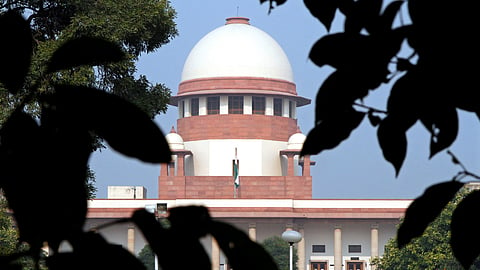

The Supreme Court’s decision to release the remaining six convicts in the Rajiv Gandhi assassination case may be controversial, but it is consistent with its previous judgment. It was only a few months ago that the apex court released AG Perarivalan. One of the four sentenced to death for killing the former Prime Minister, his sentence was commuted to life imprisonment in 2014. In Perarivalan’s case, the Court took note of the enormous delay in addressing a petition seeking his release. The matter kept shuttling before the Governor and the President, leading the Court to invoke its powers under Article 142 of the Constitution, which gives it blanket powers to pass any order “for the sake of doing complete justice”.
Having taken this position, it is hardly surprising that the Court ruled that the same considerations should apply to the other convicts. It took note of the fact that they had spent more than three decades in prison and that their conduct was satisfactory. Of the six, three had been originally sentenced to death (Nalini, Murugan and Santhan) while three others (Robert Payas, Jayakumar and Ravichandran) were awarded life imprisonment.
The Supreme Court’s decision in this case has important legal implications. In taking such a stance, it has set aside the convention that those convicted to death should spend their entire life in prison in the event of commutation. The idea that no one should be subjected for so long to what it described as a “living death” could be applied in other cases as well. In the long run, this decision could trigger the release of the convicts who have undergone long incarcerations.
It is important to keep in mind that the Court was focussed on a narrow issue – that of delay. Those released remain convicted of murder and the release does not absolve them morally or otherwise of what they did. This is why it is wholly inappropriate to celebrate their release as if it is some kind of political victory. It is true that the Tamil Nadu government had petitioned for their release. But there is no cause for anyone in the polity, influenced or otherwise by a mix of regional chauvinism and a covert sympathy for the LTTE, to portray this as a vindication of their innocence. Their release was necessitated by a mix of administrative and judicial delay, and no other consideration.
As for the Congress, the party has a right to feel disappointed about the manner in which the entire issue has played out. It is true that it was Sonia Gandhi who pressed for the commutation of the death sentence, but it is doubtful whether she or anyone else in the party had anticipated that it would seed the ground for their release. Going forward, it will be interesting to see the impact of the two judgments on the release of the convicts in the Rajiv Gandhi assassination case on other cases. Seven have been freed, but the implication for others is probably greater than ordinarily imagined.
Visit news.dtnext.in to explore our interactive epaper!
Download the DT Next app for more exciting features!
Click here for iOS
Click here for Android